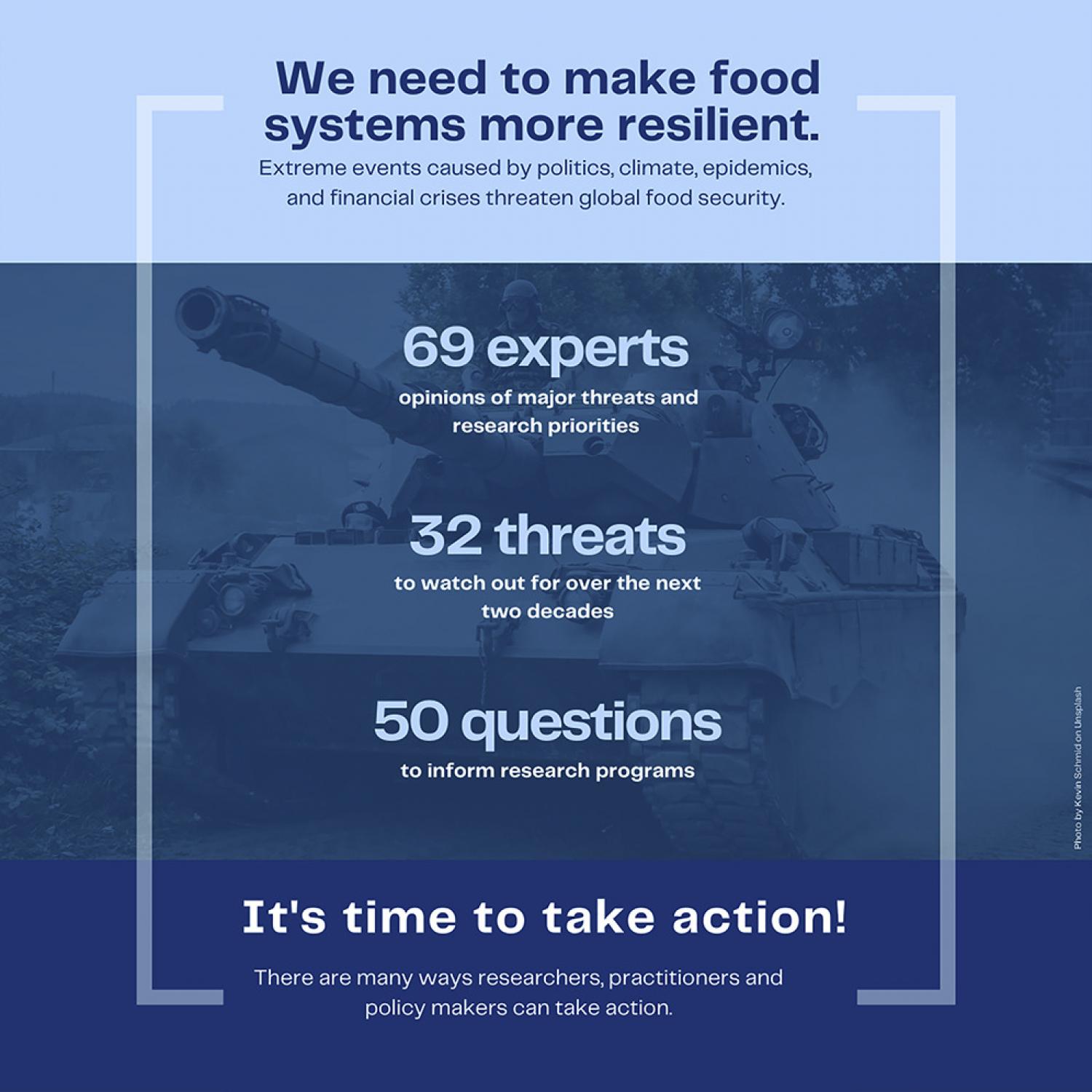
Extreme events, such as those caused by climate change, economic or geopolitical shocks, and pest or disease epidemics, threaten global food security. The complexity of causation, as well as the myriad ways that an event, or a sequence of events, creates cascading and systemic impacts, poses significant challenges to food systems research and policy alike. To identify priority food security risks and research opportunities, we asked experts from a range of fields and geographies to describe key threats to global food security over the next two decades and to suggest key research questions and gaps on this topic. Here, we present a prioritization of threats to global food security from extreme events, as well as emerging research questions that highlight the conceptual and practical challenges that exist in designing, adopting, and governing resilient food systems. We hope that these findings help in directing research funding and resources toward food system transformations needed to help society tackle major food system risks and food insecurity under extreme events.
